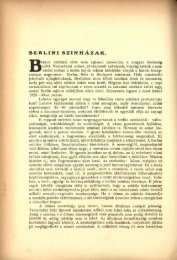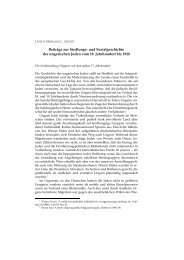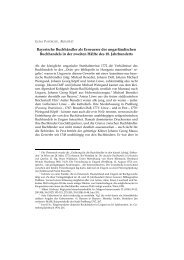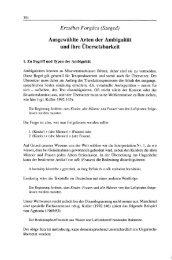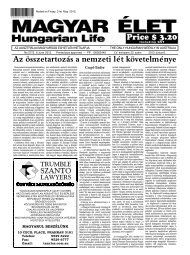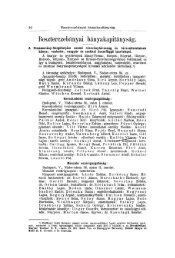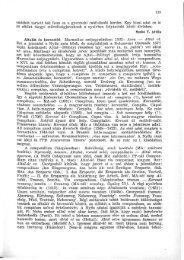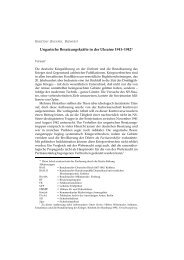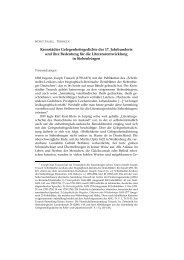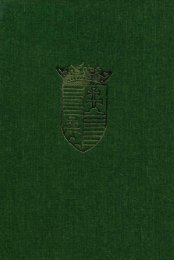Journal of Eurasian Studies - EPA
Journal of Eurasian Studies - EPA
Journal of Eurasian Studies - EPA
Create successful ePaper yourself
Turn your PDF publications into a flip-book with our unique Google optimized e-Paper software.
July‐September 2010 JOURNAL OF EURASIAN STUDIES Volume II., Issue 3.<br />
_____________________________________________________________________________________<br />
Since all citizens <strong>of</strong> Hungary, according to the principles <strong>of</strong> the constitution, form from a political point<br />
<strong>of</strong> view one nation – the indivisible unitary Hungarian nation – <strong>of</strong> which every citizen <strong>of</strong> the fatherland is<br />
a member, no matter to what nationality he belongs: since, moreover, this equality <strong>of</strong> right can only exist<br />
with reference to the <strong>of</strong>ficial use <strong>of</strong> various languages <strong>of</strong> the country, and only under special provisions, in<br />
so far as is rendered necessary by the unity <strong>of</strong> the country and the practical possibility <strong>of</strong> government and<br />
administration; the following rules will serve as standard regarding the <strong>of</strong>ficial use <strong>of</strong> the various<br />
languages, while in all other matters the complete equality <strong>of</strong> the citizens remained untouched.<br />
The nationality law <strong>of</strong> 1868 tried to combine a ‘civic’, i.e. a Western European interpretation <strong>of</strong> the<br />
nation and an ‘ethnic’, i.e. Central and Eastern European interpretation <strong>of</strong> the nation. 14 Consequently, the<br />
Law on the Equality <strong>of</strong> Nationalities not only distinguishes a ‘political civic nation’ but also the concept <strong>of</strong><br />
nationality, i.e. ethnicity. This latter originates from the view characteristic for nineteenth century’s<br />
Central and Eastern European nationalism that the ‘nation’ is first and foremost a community <strong>of</strong> common<br />
descent and a member is organically connected to it. 15 Note further that this law introduces a special<br />
relation between ethnicity, nationality and language. The most important marker <strong>of</strong> ethnicity, nationality<br />
is in fact one’s mother tongue. This has to do with the fact that in early nineteenth century’s Central and<br />
Eastern European nationalism the place <strong>of</strong> law in the Western civic model is taken by vernacular culture,<br />
usually languages and customs in the ethnic model. Following Smith (1991, 11‐13, 20), we will adopt the<br />
generalization that in Central and Eastern Europe there is a strong correlation between vernacular<br />
language and culture on the one hand and ethnicity, nationality on the other hand. Observe that Smith’s<br />
generalization for Central and Eastern Europe stipulates the following correlation between ethnicity and<br />
language:<br />
Smith’s generalization for Central and Eastern Europe:<br />
If you are <strong>of</strong> X ethnicity, then language X is X’s mother tongue<br />
This expresses the fact that nationality in this area <strong>of</strong> Europe was determined quite <strong>of</strong>ten on the basis <strong>of</strong><br />
mother tongue. 16 The five censuses that were hold in the Hungarian kingdom during dualism, i.e. 1869,<br />
1880, 1890, 1900 and 1910 only inquired about the mother tongue <strong>of</strong> the persons interviewed and not<br />
about their nationality. 17 Although Smith’s generalization is always true when it goes from left‐to‐right it<br />
is not always the case vice versa. There are a number <strong>of</strong> exceptional cases due to the fact that there is no‐<br />
one‐to‐one matching between ethnicity and mother tongue language or sometimes this matching is not<br />
relevant for determining ethnicity. Bi‐ or multilingual speakers can have more than one mother tongue.<br />
This was true in the Hungarian kingdom as well. In case <strong>of</strong> the Serbs and Croats it was hard to decide on<br />
the basis <strong>of</strong> the language criterion only Serbian or Croatian ethnicity for the languages are quite similar. In<br />
14 Compare Smith (1991, 11‐13).<br />
15 See Smith (1991, 11).<br />
16 See Faluhelyi (1946, XLV).<br />
17 See Lökkös (2000, 27)<br />
_____________________________________________________________________________________<br />
© Copyright Mikes International 2001‐2010 34



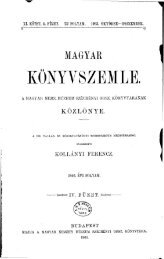
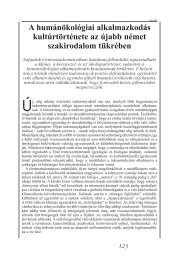
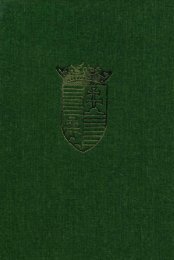
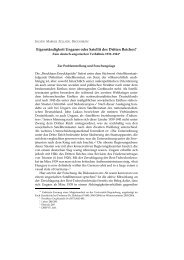
![Letöltés egy fájlban [36.8 MB - PDF] - EPA](https://img.yumpu.com/23369116/1/172x260/letoltes-egy-fajlban-368-mb-pdf-epa.jpg?quality=85)
